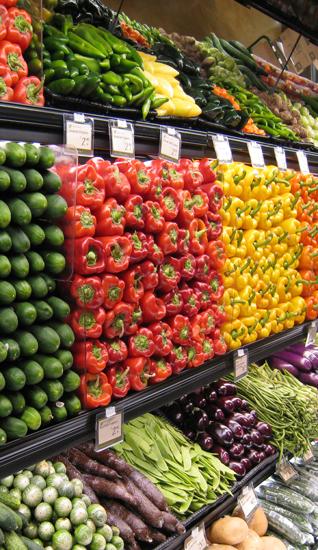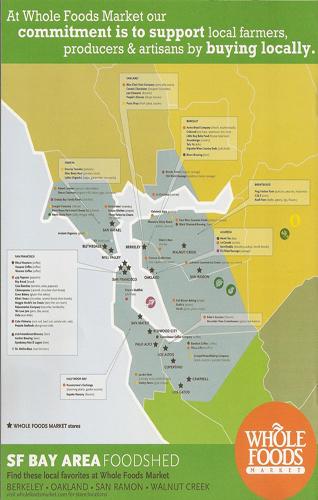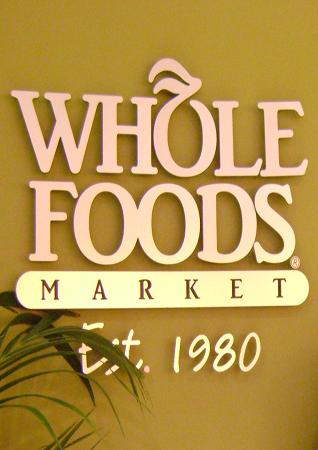Cuisine
Harvindar Singh: He Scouts For Whole Foods
by LIANA B. BAKER
When Sikh-American Harvindar Singh first visited the Emeryville warehouse of BTTR Ventures, the urban-farming start-up didn't have a product so much as a vision - mushrooms grown in recycled coffee grounds.
Just more than a year later, BTTR mushrooms and growing kits are featured on the shelves of 30 Whole Foods Market Inc. stores in Northern California and a wider rollout is in the works.
Harvindar Singh is Whole Foods' only full-time food forager, scouring the Bay Area for locally made products that are often little-known - and potentially profitable. He helps bring new items to the chain's 284 stores nationwide in part by lending money to producers that need funds to ramp up production.
"My job is to go out there and find the best local products," said Harvindar, 39 years old. "I like going to obscure little towns that may have 10 vendors and you always find one [with potential]."
That Whole Foods has a full-time Bay Area food scout underlines how national food trends often start in the region, which is a birthplace of the organic food movement.
Other supermarket chains, such as Save Mart Supermarkets and Safeway Inc., also say the area is a key source for new products.
Safeway, for instance, says roughly 45% of its produce in California comes from local sources. The supermarket launched a program last year to increase its focus on locally grown produce, which helps more growers meet the standards to supply Safeway stores.
Overall, sales for Northern California's natural-products industry, which includes organic, specialty and gourmet products, rose 11% to $249.2 million for the 12 months ended in April, nearly double the 6% growth rate nationally and ahead of every region except the Northeast, according to market research firm Spins.
Whole Foods, which launched its $10 million low-interest loan program to help local farmers and producers in 2006, has lent $565,000 to 10 Bay Area companies, with an additional $220,000 in the pipeline for four more producers in the region. That ties the Bay Area with the Rocky Mountain and Southwest regions for the biggest chunk of the Austin, Texas, company's program, ahead of nine other U.S. regions.
"The two areas we look at to see the newest, hottest things are New York and the Bay Area, but for our customer, San Francisco Bay Area is number one, because there's such a passion for natural and organic productions and new ideas," said Cathy Strange, Whole Foods' national cheese buyer.
Harvindar Singh first visited BTTR in March 2009, and this year he helped the mushroom producer secure a $25,000 loan to double the size of its warehouse. BTTR now sells 300 pounds of mushrooms a week to Whole Foods, a far cry from its first sale - 3.14 pounds of mushrooms in an old asparagus box sold to the Berkeley Whole Foods in October.
The loan was "the investment we needed," said 23-year-old Nikhil Arora, co-founder of BTTR. "Our goal is to pay it back in a year and a half."
Still, some Bay Area food producers say no when Whole Foods comes knocking. In 2008, Blue Bottle Coffee in Oakland declined Whole Foods' interest in carrying its shade-grown beans. Blue Bottle founder James Freeman said it came down to shelf life - he won't sell coffee that is more than 48 hours out of the roaster, and that was something he would have to forgo on a Whole Foods shelf.
"You can choose to have a really tight control of your product, or you can give that up when you decide to sell to Whole Foods," Mr. Freeman said.
Being carried nationally by Whole Foods isn't a good fit for all food producers, Harvindar acknowledged. The native of Fiji, who previously started farmers' markets in Port Townsend, Wash., and San Ramon, joined Whole Foods in 2005 as a marketing and community relations coordinator for a Redwood City store before becoming a forager in 2007.
Among his biggest local finds was vegan Bolani flatbread, which he brought onto shelves in 2007 and helped go national. Another hit is Kombucha, a fermented tea Whole Foods began carrying on tap in 2009. Harvindar said he first saw the tea on tap in a café in Oakland.
Harvindar Singh predicts pastured eggs, which come from chickens that are able to graze outdoors, rather than just indoors like some free-range chickens, will take off next.
He is also helping Whole Foods roll out a new super-local food store in Mill Valley, slated to open June 9. In March, he attracted 150 food producers to a symposium in Mill Valley where he led workshops on packaging, labeling and how to meet Whole Foods standards.
He says about 50 to 60 of the attendees will have their products carried in the new store, which will source more items from local producers than other stores. "We are blessed in Northern California, the capital of the local food movement, to have an abundance of local growers, producers and artisans to work with," he said.
[Courtesy: The Wall Street Journal]
June 11, 2010





